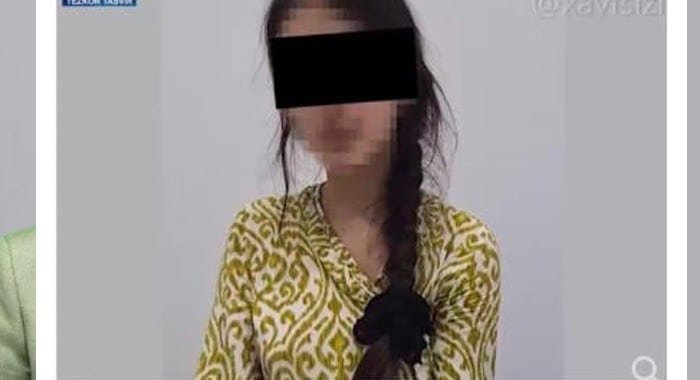Uzbekistan’s State Security Service (SSS) has uncovered a secret cell of the Islamic State Khorasan Province (IS-KP) operating in the northeastern city of Namangan, with a 19-year-old woman shockingly revealed as its ringleader.
According to officials, the young woman developed extremist views while studying at a private religious seminary in Istanbul, Turkey, in 2022. Upon returning to Uzbekistan, she reportedly became an active online propagandist for ISKP, using social media to spread radical ideology.
Acting on intelligence, the SSS conducted raids at 16 different locations, seizing 37 mobile phones, a laptop, a tablet, four flash drives, 51 unverified religious texts, and 40 DVDs. Three core members of the cell were arrested, and criminal charges have been filed.
Investigators said the group used encrypted platforms like Telegram to distribute extremist material to nearly 120 individuals. The content, which included audio, video, and written material promoting jihad, martyrdom, and the caliphate, was aimed at radicalising youth.
Authorities revealed that the woman had established contact with extremist individuals while in Turkey, which significantly influenced her ideological shift. Back in Uzbekistan, she not only embraced militant views but also worked systematically to recruit others.
Officials warned that ISKP and similar groups are increasingly turning to digital platforms and educational settings to influence the younger generation, rather than relying solely on traditional militant tactics.
The SSS has urged citizens to report any suspicious activity and has established a dedicated hotline for this purpose. Officials reaffirmed that Uzbekistan has zero tolerance for terrorism and is committed to eradicating extremism in all its forms — both physical and ideological.
Experts note that the involvement of women in extremist activities signals a worrying evolution in recruitment strategies. “This case demonstrates how ISKP is opening new fronts, not just with weapons, but with ideas,” one analyst said. “Countering this threat will require more than just security measures; it demands a comprehensive intellectual response.”





